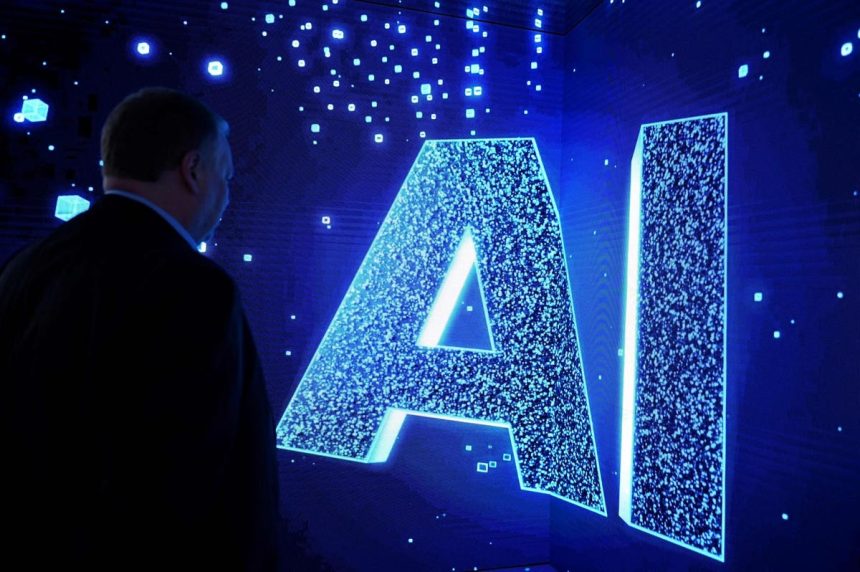Are AI counselors the future of post-secondary guidance? The first ones are here, and they’re ridiculously good.
As counselors around the country struggle to cope with the aftermath of the COVID-19 pandemic, superintendents around the country are increasingly turning to expert AI-powered college and career counselors to transform post-secondary guidance.
So what is an AI counselor?
AI counselors provide students and parents with 24/7, 1-1 guidance right on their phones. Expert answers to highly complex and nuanced guidance questions are just a chat away. Some advanced AI counselors, like Ivy, are able to proactively check in with the student and prompt advising discussions. One of the most transformative capabilities of AI counselors is multilingual support – ELL students can finally access high-quality guidance in their native language.
By raising the baseline for college and career counseling in high schools and allowing counselors to prioritize high-impact in-person interventions, AI counselors are giving human counselors superpowers.
To date, most of the discussion of AI in districts has focused on the (very real) challenges that tools like ChatGPT create in the classroom. But while the impact of AI on academic integrity remains an open question, district leaders are increasingly deploying AI on an essential mission: 100x-ing guidance capacity in their district.
What’s the point of the education system if we don’t help students with the last mile?
Counselors are stretched thin in public districts. Students are still reeling from the impact of the pandemic, and social and emotional challenges are particularly acute. 96% of counselors say the need for social and emotional intervention has increased since 2019, a challenge that is only exacerbated by a shortage of qualified school psychologists. Counselors are often being asked to do more with less. It’s little wonder that 67% of counselors report experiencing burnout, according to data from the American School Counseling Association (ASCA).
What is increasingly being traded off is college and career counseling. The day-to-day need for intervention is so high that counselors simply cannot prioritize guidance that aims to facilitate a brighter future for students. Today, counselors only spend 12% of their workweek on professional pathway guidance related to college, career, and military pathways.
Students are unhappy with this equilibrium. According to a 2022 report from CollegeVine, 71% of students want more college and career guidance than they currently receive from counselors. This guidance gap is strangling student opportunity, regardless of a student’s pathway.
Basic counseling needs are hard enough to fill, but specialized and niche domains pose even more of a challenge. Whether it’s native language support, specialized counseling about the impact of immigration and visa status on higher education, or guidance about professional licensing standards, counselors themselves identify several key domains where students require additional support that they cannot provide.
The transformative impact of AI counseling
But some districts are turning the tide with the deployment of 24-7, 1-1 AI counseling. Thus far, access to high-quality, personalized guidance has been transformative for students, counselors, and parents. Parents who don’t speak English as a first language are amongst the biggest beneficiaries.
It’s not practical to expect a typical staff of 6-12 counselors to simultaneously provide bilingual support to Spanish-speaking immigrants from El Salvador, Urdu-speaking immigrants from Pakistan, and French-speaking immigrants from Haiti. AI counselors like Ivy are able to provide personalized guidance in those languages and dozens more.
While off-the-shelf tools like OpenAI’s ChatGPT and Google’s Bard can be useful in some circumstances, counseling teams are finding it even more useful to deploy purpose-built counselors as a co-pilot that is embedded in their school ecosystem. The AI counselors learn district deadlines, graduation requirements, and course catalogs and use that information to provide contextualized and hyper-specific guidance to students and families. This is a huge time saver for counselors, who often spend hours fielding questions from parents and students about these very topics. Counselors are also using AI tools like Ivy to speed up the process of writing recommendation letters, facilitate student communication, and even identify and prioritize students who require direct intervention.
Rec letters have emerged as a particularly valuable domain for counselors because they require a concentrated burst of effort and writing at the beginning of a school year. A counselor who writes recommendation letters for 50 students this fall will often end up having to write more words than a John Steinbeck novel.
“As a school counselor for 18 years, I’ve written a lot of recommendation letters. It’s heightened at the beginning of the school year with students applying to various colleges & universities,” said Shavon Robinson, a school counselor from Charlotte. “At times, you just run out of what to write. No two letters should be the same, and each letter is geared specifically to the student you’re writing about… Having Ivy is a game-changer!”
The other main value proposition that purpose-built tools offer school districts is safety. While third-party tools like ChatGPT offer decent protections, the purpose-built tools are engineered to a higher standard and designed to fit into existing reporting and compliance workflows by immediately flagging critical situations to counselors and other on-campus responders. More broadly, signing up for these tools is enabling districts to be proactive about the deployment of AI in their districts. Many districts are trying to figure out how to use AI, and AI counseling is a great place to start. It doesn’t have the same types of downsides and edge cases that classroom usage does. It even allows students to develop valuable skills by engaging productively with AI in a controlled setting.
For their part, students and parents love AI counseling. As they face a more uncertain and stressful future, AI counseling tools enable parents and students to get the guidance they need.
“The most valuable element to CollegeVine’s AI platform was being able to quickly determine which colleges provide our two daughters’ very unique interests of aviation & paleontology,” said Gina Addison, a high school parent in Tennessee. “We found the AI to be extremely efficient and has, in the process, alleviated a lot of our admissions stress being spot on with its rapidity and accuracy.”
The convenience is also unmatched – allowing families to access counseling outside of school hours and in a language that they understand. The college admissions process is particularly stressful, and many students have come to rely on AI counseling for essential assistance with the process.
“Ivy has helped me expand the horizon of my own brainstorming capabilities,” said Syed, a rising senior who will be applying to colleges this fall.
This is the critical moment to deploy AI counseling in your district
Many district leaders view the upcoming school year as the ideal moment to deploy AI counseling. College and career guidance are more important than ever. For students on the college pathway, the end of affirmative action creates new challenges for students of color, while navigating college applications and financial aid is becoming more difficult for students of all backgrounds. The tradeoff between pursuing a job or pursuing higher education is much more salient, and students need a lot of help making that call. Even for students who opt to directly enter the workforce, professional licensing is becoming more complex and harder to navigate.
In addition to elevated guidance needs, districts themselves are becoming more diverse, and families have more specialized needs. Districts serve an increasing population of families of color, immigrants, and ELL students and parents. The net result is that districts need ten to fifteen times as much counseling capacity – but hiring 40-50 additional counselors simply isn’t practical. AI counseling tools like Ivy are increasingly being relied upon to close that gap.
The other driver for many district leaders is that earlier deployment of AI counseling offers a tangible benefit. Ai counselors get better as they learn more about a student’s goals, history, sentiments, and outcomes. The earlier AI counseling is deployed, the better the guidance gets. As counselors are drowning, the AI tools also save time for them and extend their counseling impact. But perhaps most importantly, people are increasingly turning to AI for assistance in navigating major life challenges. That process can be led and monitored by your, your staff, and other district stakeholders with purpose-built tools. Or, it can happen out of sight on third-party tools that were not designed for district deployment.
Read the full article here










